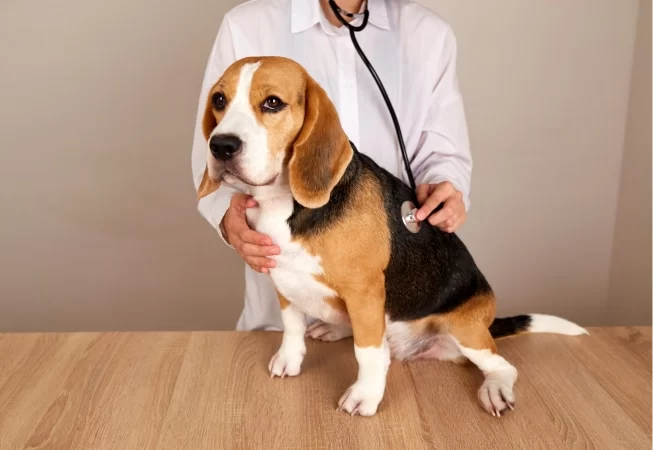- The Importance of Regular Check-Ups
- How Regular Check-Ups Benefit Your Pet
- Common Health Issues Prevented by Regular Check-Ups
- When to Schedule Your Pet’s Check-Ups
- Real-Life Case Studies: The Power of Preventative Care
- Where to Get Professional Pet Care
The Importance of Regular Check-Ups
Regular check-ups are one of the most important aspects of maintaining your pet’s health. These visits to the veterinarian aren’t just about treating illness—they’re essential for preventive care that helps detect problems early before they become serious. Just like people, pets need routine health monitoring to ensure they stay healthy and happy throughout their lives.
For many pet owners, it might be tempting to skip a vet visit, especially when their pet seems healthy. However, even the healthiest pets can develop health issues that aren’t immediately visible. Regular check-ups help catch underlying conditions early, leading to quicker and more effective treatment. By investing in your pet’s health today, you can help avoid expensive and extensive treatments in the future.
How Regular Check-Ups Benefit Your Pet
Routine check-ups play a critical role in maintaining your pet’s overall health and well-being. The benefits of these visits are numerous:
1. Early Detection of Health Issues
One of the primary benefits of regular check-ups is the early detection of health issues. Many conditions, such as heart disease, kidney issues, or even cancer, can develop slowly and may not show obvious signs in the early stages. With routine check-ups, your vet can identify these problems early, which significantly improves the chances of successful treatment and management.
2. Keeping Vaccinations Up to Date
Regular visits to the vet ensure that your pet’s vaccinations are up to date. Vaccines are crucial for preventing deadly diseases, and maintaining a vaccination schedule is an important aspect of responsible pet ownership.
3. Monitoring Growth and Weight
Routine check-ups allow the vet to monitor your pet’s growth and weight, which are crucial indicators of overall health. For example, unexplained weight loss or gain can be signs of underlying health issues such as thyroid problems, diabetes, or gastrointestinal disorders.
Common Health Issues Prevented by Regular Check-Ups
Regular vet visits can help prevent a range of health issues by catching them early. Some common conditions that are detected through routine check-ups include:
1. Dental Disease
Dental issues, such as gingivitis or periodontal disease, are common in pets, especially as they age. These conditions can lead to pain, tooth loss, and even systemic infections. Regular check-ups often include dental assessments, allowing for early intervention and the prevention of more severe oral health problems.
2. Parasites
Pets are often exposed to parasites like fleas, ticks, and worms. Regular check-ups can help identify and treat these parasites before they cause serious health problems. Your veterinarian can also provide advice on parasite prevention, such as flea and tick medications or deworming schedules.
3. Obesity
Obesity is a growing concern in pets, leading to conditions such as joint problems, diabetes, and heart disease. Regular check-ups help your vet monitor your pet’s weight and advise on proper diet and exercise to maintain a healthy weight.
When to Schedule Your Pet’s Check-Ups
Knowing when to schedule your pet’s check-ups is essential for their health. The frequency of visits depends on your pet’s age, breed, and health condition:
1. Puppies and Kittens
Young pets should visit the vet frequently for vaccinations, parasite control, and early health screenings. During their first year, they may need check-ups every 3-4 months to ensure they are growing and developing properly.
2. Adult Pets
For healthy adult pets, annual check-ups are typically sufficient. However, certain pets, especially those with chronic health conditions, may need to visit the vet more frequently for monitoring and treatment.
3. Senior Pets
As pets age, they may become more prone to health issues such as arthritis, kidney disease, or heart disease. Senior pets often benefit from bi-annual check-ups to ensure that any age-related conditions are caught early and managed effectively.
Real-Life Case Studies: The Power of Preventative Care
To illustrate the importance of regular check-ups, here are a couple of real-life examples of pets whose health issues were discovered early thanks to routine visits:
1. Bella’s Heart Murmur
Bella, a 5-year-old golden retriever, seemed like a healthy dog. However, during her annual check-up, the vet detected a faint heart murmur. Further tests revealed early-stage heart disease. Thanks to Bella’s regular check-ups, the vet was able to prescribe medication and recommend lifestyle changes, preventing the condition from worsening and allowing Bella to live a long, happy life.
2. Max’s Dental Disease
Max, a 10-year-old tabby cat, had a regular check-up that included a dental exam. His vet noticed signs of periodontal disease and recommended a dental cleaning. Early intervention prevented further complications, such as tooth loss or infection, saving Max from pain and expensive dental procedures down the road.
Where to Get Professional Pet Care
If you’re looking for expert care for your pet, Hidden Brook Veterinary offers comprehensive check-up services and preventative care tailored to your pet’s needs. Our team is dedicated to helping your pet stay healthy and happy, offering everything from routine check-ups to specialized treatments for more complex conditions.












